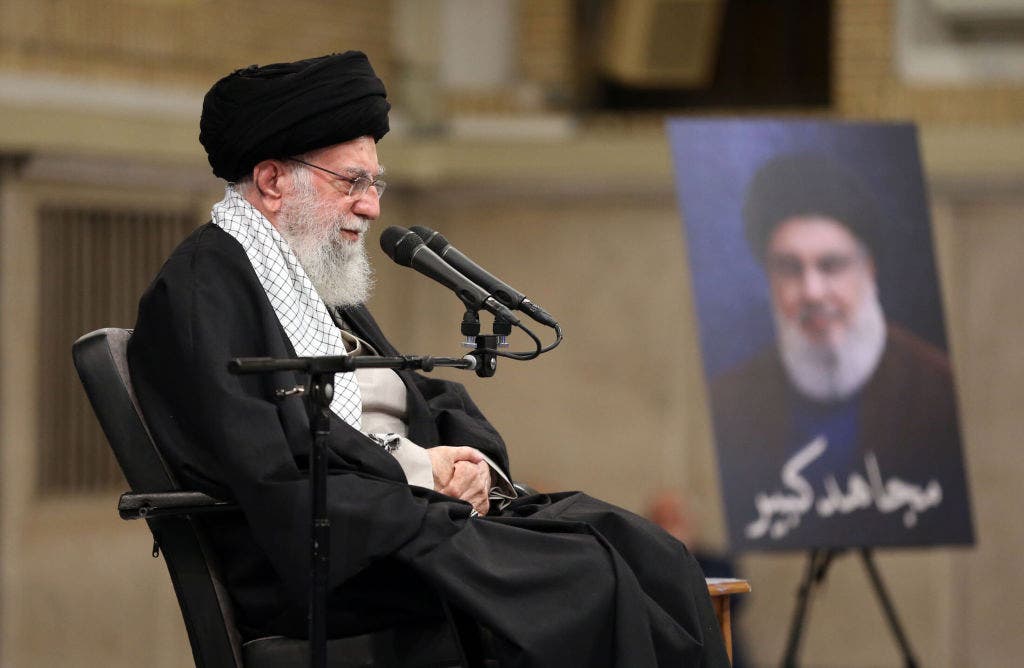Iran’s Supreme Leader Ayatollah Ali Khamenei recently declared the country’s capability to build a nuclear weapon, vowing a strong response to actions by both Israel and the U.S. A top adviser to Khamenei, Kamal Kharrazi, warned that Iran would be willing to modify its policies on nuclear weapons if faced with an existential threat. General Mohammad Naeini of the Iranian Revolutionary Guard backed up the heated rhetoric, promising a powerful and strategic response to any aggression from the enemy. These statements come in the context of heightened tensions between Iran and Israel, with recent attacks and counterattacks escalating the conflict.
Israel’s attack on Iran’s critical military infrastructure on Oct. 26 was in retaliation for a wave of over 200 missiles launched from Iran into Israel on Oct. 1. Israeli Prime Minister Benjamin Netanyahu has hinted that Iran’s nuclear program could be the next target, amid Tehran’s promises of violent retaliation. The U.S., Israel’s key ally in the region, has cautioned against targeting Iran’s energy infrastructure, including its nuclear and oil facilities, for fear of sparking a wider regional conflict. Reports suggest that Iran may be waiting until after the U.S. presidential election, though the possibility of a retaliatory strike remains imminent according to some sources.
The threat of Iran’s nuclear capability has raised concerns among international observers about the potential for further escalation in the region. Iran’s willingness to weaponize its nuclear program in response to perceived existential threats is a troubling development that could have far-reaching implications. The ongoing conflict between Iran and Israel, exacerbated by recent attacks and counterattacks, has brought the two nations to the brink of a devastating confrontation. The involvement of the U.S. as Israel’s ally adds another layer of complexity to the situation, with the risk of regional conflict looms large.
The aggressive rhetoric from Iranian leaders and the escalating tensions in the region underscore the urgent need for diplomatic efforts to defuse the situation and prevent a full-blown conflict. The possibility of Iran developing a nuclear weapon and the threat of Israeli strikes on Iranian facilities create a volatile environment that could have catastrophic consequences. The international community, particularly the U.S. and other key stakeholders, must work to find a peaceful resolution to the crisis and prevent further escalation. Dialogue, negotiation, and de-escalation measures are essential to avoid a dangerous military confrontation that could destabilize the entire region.
The potential for Iran to weaponize its nuclear program and the threat of Israeli strikes raise the stakes in an already volatile region, where tensions are running high. The risk of a wider conflict involving other regional players is a real concern, given the complex web of alliances and rivalries in the Middle East. The U.S. plays a crucial role in the region as Israel’s ally, but must also balance its interests with the need to avoid a catastrophic regional war. Diplomatic efforts, backed by strong international pressure, are necessary to address the underlying issues and work towards a lasting peace that ensures security and stability for all parties involved.
In conclusion, the escalating tensions between Iran and Israel, fueled by threats of violence and the specter of nuclear weapons, present a grave threat to regional stability. The risk of a wider conflict involving other regional players, such as the U.S., underscores the urgent need for diplomatic action to defuse the situation. Iran’s provocative statements regarding its nuclear capability and Israel’s warnings of military action highlight the dangers of miscalculation and brinkmanship in the region. The international community must act swiftly to prevent further escalation and work towards a peaceful resolution that addresses the root causes of the conflict and ensures the security of all parties involved.















